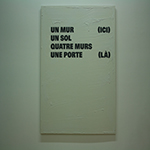Euroacademia Conferences
 Europe Inside-Out: Europe and Europeanness Exposed to Plural Observers (9th Edition) April 24 - 25, 2020
Europe Inside-Out: Europe and Europeanness Exposed to Plural Observers (9th Edition) April 24 - 25, 2020 Identities and Identifications: Politicized Uses of Collective Identities (9th Edition) June 12 - 13, 2020
Identities and Identifications: Politicized Uses of Collective Identities (9th Edition) June 12 - 13, 2020 8th Forum of Critical Studies: Asking Big Questions Again January 24 - 25, 2020
8th Forum of Critical Studies: Asking Big Questions Again January 24 - 25, 2020 Re-Inventing Eastern Europe (7th Edition) December 13 - 14, 2019
Re-Inventing Eastern Europe (7th Edition) December 13 - 14, 2019 The European Union and the Politicization of Europe (8th Edition) October 25 - 26, 2019
The European Union and the Politicization of Europe (8th Edition) October 25 - 26, 2019 Identities and Identifications: Politicized Uses of Collective Identities (8th Edition) June 28 - 29, 2019
Identities and Identifications: Politicized Uses of Collective Identities (8th Edition) June 28 - 29, 2019 The European Union and the Politicization of Europe (7th Edition) January 25 - 26, 2019
The European Union and the Politicization of Europe (7th Edition) January 25 - 26, 2019 7th Forum of Critical Studies: Asking Big Questions Again November 23 - 24, 2018
7th Forum of Critical Studies: Asking Big Questions Again November 23 - 24, 2018 Europe Inside-Out: Europe and Europeanness Exposed to Plural Observers (8th Edition) September 28 - 30, 2018
Europe Inside-Out: Europe and Europeanness Exposed to Plural Observers (8th Edition) September 28 - 30, 2018 Identities and Identifications: Politicized Uses of Collective Identities (7th Edition) June 14 - 15, 2018
Identities and Identifications: Politicized Uses of Collective Identities (7th Edition) June 14 - 15, 2018
Art, Politics, and PR. The Krupp Company and the First “Semi-official „Exhibition of Polish Art in Western Germany 1962/63
-
-

-
Presentation speakers
- Regina Wenninger, Zentralinstitut für Kunstgeschichte (ZI),Munich
Abstract:
In the long and difficult process towards normalization of Polish-Western German relations, art and culture were frequently invoked as a means to pave the way for political rapprochement. To counteract the impasses of official politics was in fact one major motor behind the numerous exhibitions of contemporary Polish art in Western Germany in the early 1960s. A particularly interesting case in point is the exhibition “Polnische Malereivom Ausgang des 19. Jahrhundertsbiszur Gegenwart” (Polish painting from late 19th century to the present) at Museum Folkwang Essen in 1962-63. Co-organized by the National Museum in Warsaw and initiated by the plenipotentiary of Krupp Company Berthold Beitz in the course of his quasi-diplomatic missions in Poland, the event was considered the first “semi-official” exhibition of Polish art in Western Germany– a significant success at times when neither diplomatic relationships nor a cultural agreement existed between the two countries. Drawing on new archival material from both German and Polish archives, the paper explores and analyzes the multifaceted entanglement of politics, culture and PR exemplified by the exhibition’s background and reception. The Folkwang exhibition not only provides a striking example for the interdependences of political fiascoes on the one and successes of cultural initiatives on the other hand. It also illustrates how in the process of Polish Western-German rapprochement art and culture were used as instruments of political image-cultivation. Not least, the exhibition epitomizes a period in which the rigid principles of Western German Ostpolitik began to corrode: The ambivalent stance, often resembling a veritable walk on egg shells, which Western German representatives took on the exhibition – sometimes declaring it neutral ground, sometimes charging it with political significance–is symptomatic here.
-
Related Presentations

David Loewenstein: Art Intervention as Social Practice
- Thor J. Mednick

















